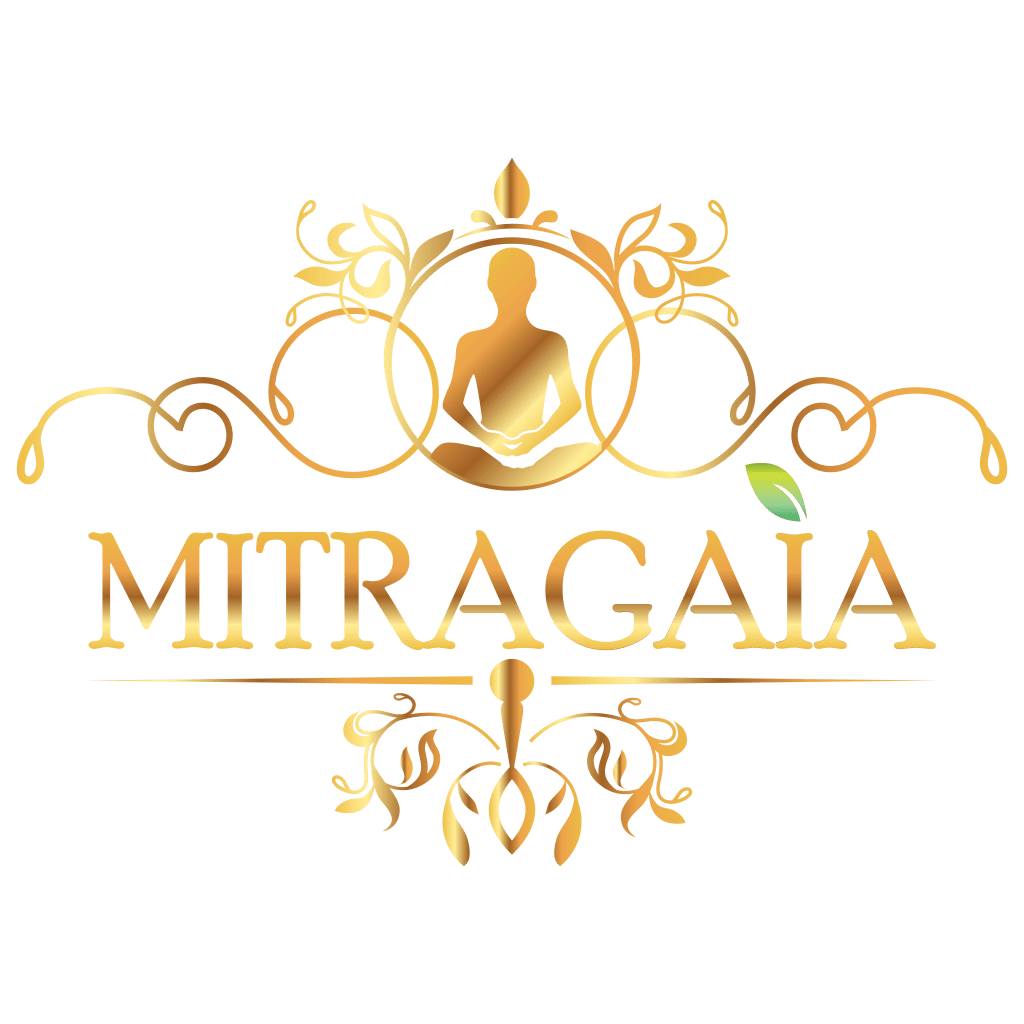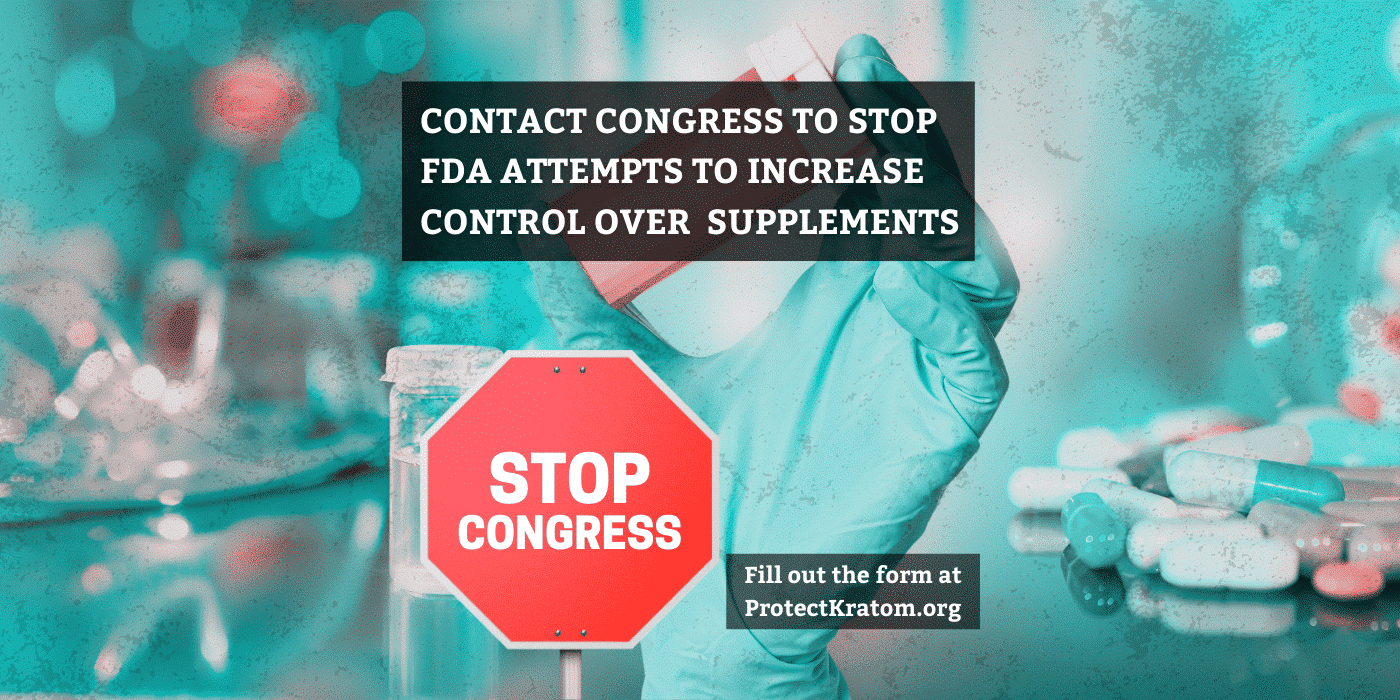Kratom News and Ban Updates
New FDA Draft Would Give the FDA More Power to Ban Supplements (and Kratom)
The Food and Drug Administration (FDA) is seeking to expand its control over dietary supplements in a new discussion draft of the FDA Safety and Landmark Advancements (FDASLA) Act. This Act includes the Prescription Drug User Fee Act (PDUFA), which is up for reauthorization.
The proposed changes could give the FDA the power to mandate that all supplements be registered. The FDA would have the power to deny the registration of a supplement it doesn’t approve, effectively banning the product from the market.
As you know, kratom is not FDA-approved for any use; it is not a dietary supplement. If the FDA decides to make kratom companies register their products as supplements, the agency could also reject their applications. If this happens, kratom could effectively be banned from the market.
The Act Is Expected to Pass, But You Can Fight Back
Only a few activist groups, including the American Kratom Association (AKA), have reached out to urge the public to speak out against it. In fact, the AKA has outlined two ways that you can help, and we’ve added a form from Votervoice:
- Sign this pre-filled Congress contact form (and add your thoughts if you desire) on ProtectKratom.org to let your Congressional representatives know that you oppose the FDA’s efforts to establish a “mandatory filing” for supplements.
- Register for an informational Q&A Zoom webinar with the AKA on May 26, 2022, at 09:00 PM (EST), to learn more and have your questions answered.
Because the supplement market is poorly-regulated and needs reform, you might initially think the new FDASLA Act is an improvement. The Senate HELP Committee even outlines the benefits of the discussion draft in an appealing frame, stating that it will increase market competition to lower drug prices.
The problem is that this summary does not address key issues that the American public should know about. By filling out these forms, you’ll let Congress know that you know what is happening and that you want to prevent the mandate provision from going through.
Mandatory Dietary Supplement Registration Can Hurt Consumers and Small Businesses
Although the supplement market is poorly-regulated and needs reform, the new FDASLA and PDUFA Act are not solutions. Requiring a mandatory registry of all dietary supplements would do little to get adulterated products off the market. In fact, the bad actors who sell adulterated supplement makers could be incentivized to submit false information and to further lie to buyers.
Furthermore, the FDA can use a drug exclusion policy to ban products from the supplements market if the ingredient was approved first as a drug. In April 2022, the FDA even decided to retroactively take NAC (N-acetyl cysteine) off the supplements market because it was approved as a drug first, nearly 50 years ago.
According to the FDA, although NAC has been sold as a supplement in the US “for over 30 years,” “NAC was approved as a new drug before it was marketed as a dietary supplement or as a food.”
Furthermore, mandatory product listing would be at odds with the Bioterrorism Act, as it would provide a comprehensive record of all supply chain points for all supplements in one electronic database. In the wrong hands, this could endanger the public. Besides, The FDA already has access to information regarding the companies manufacturing and distributing supplements. It already can, at any time, inspect facilities and utilize the Department of Justice and other federal agencies if needed to investigate and litigate those responsible for adverse events.
We need better consumer protection in the supplements industry, not syntactical legal games and profit wars.
Don’t Let Big Pharma Compete with Supplements Businesses.
NAC has a long history of safety—as both a supplement and a drug. Why can’t it be sold and regulated in both categories? NAC’s benefits have yet to be fully explored in research; it would be unfair to limit public access to it when people are using it safely for their health. The FDA’s move against NAC supplements is not about public safety or accessibility; it’s about who got there first—Big Pharma or the supplements industry?
By the same logic, the FDA could remove CBD from the market because CBD was first studied as a drug. Thus, the FDASLA Act could make it easier for Big Pharma to research herbal supplements for drug approval, effectively monopolizing them before smaller businesses are able to get their supplement applications approved by the FDA.
In our drawn-out fight to get Mitragyna speciosa regulated, it would be a travesty to see this happen to the kratom community. We have to push back.
Protect Your Rights to Access Dietary Supplements
Supplements are not drugs and should not be regulated like drugs. If you want to protect your rights to buy supplements from responsible businesses at your own discretion and prevent Big Pharma from competing with small businesses, please let your voice be heard.
So, please take the opportunities listed earlier in the article to write to your Congressional representatives and tell them to oppose efforts to establish a “mandatory filing” for supplements.
Feel free to spread the word and share this information with friends and family via social media, email, or in person.


Hello I hope someone is reading this, I take Kratom daily and have for years. It has helped me so much words can’t explain. My life without it would not be good. Please don’t take it away. Anything can harm you even Advil..